AO Edited
Humboldthain Flak Tower
These former Nazi anti-aircraft towers offer a singular view of the north of Berlin in the summer, and a sanctuary for bats in winter.
Volkspark Humboldthain is a large landscaped park in the Gesundbrunnen area of north Berlin, built in the 1870s to commemorate the 100th birthday of the Prussian polymath and explorer Alexander von Humboldt. In addition to an open-air swimming pool, rose and sculpture garden, vineyard and several playgrounds, its main attractions are the two historic flak towers at the top of a World War II air-raid shelter, a monstrous concrete structure from the early 1940s that offers a singular view of the north of Berlin.
The flak towers were built by personal order of Adolf Hitler in 1940. Following the first lethal air raids of the Royal Air Force on German cities, thousands of air-raid shelters were built all across the German Reich. This massive construction effort included building so-called flak towers, huge above-ground blockhouse towers equipped with anti-aircraft guns. Eight of these structures were built in Berlin, Hamburg, and Vienna. Flak is the abbreviation of Fliegerabwehrkanone, which literally translates to “aircraft defense cannon.”
These massive concrete structures served a dual purpose: The flaks were to defend nearby factories against Allied aerial attacks and the air-raid shelters to protect 10,000s of local civilians. Much of the original park was destroyed to make room for the towers, which were built using scores of forced laborers who worked around the clock. Due to the nearby factories, which the anti-aircraft towers were built to protect, the Humboldthain area was a key target for British and American bombers. Many of the forced laborers perished during the raids.
After the war, French soldiers took down all but two of these defensive structures. The two northern towers were spared because demolition was considered too dangerous. The nearby train tracks to the north were under Soviet administration and damaging them could have sparked a diplomatic situation. In the years after 1945, Allied troops transported 1.4 million cubic meters of wartime debris to what was once Humboldthain park, creating two hills of rubble that covered most of the remaining concrete structures. This was common practice in Berlin after the war and several such rubble hills were created, including Teufelsberg (Devil’s Mountain) in Grunewald and Großer Bunkerberg (Large Bunker Hill) in the Friedrichshain district. The two Humboldthain hills were named Humboldthöhe (Humboldt Heights) and the 29-hectare park was restored to its former glory in the 1950s. The open-air swimming pool was also built during that time and remains open to this day.
Today, Humboldthöhe is completely covered in trees. In the summer, when the trees are in full leaf, the massive bunker is almost invisible except for the two flak towers and the large aluminum sculpture by artist Arnold Schatz, which was put up in 1967. It symbolizes the two German states during the Cold War and the persisting hope for reunification. Before enjoying the view, visitors must hike up 100 meters of serpentine to the top of the tower. On the way up, there is a members-only climbing wall of the German Alpine Club.
While the view from the leafy hills, the rose garden, and the swimming pool make Humboldthain park a natural summer destination, visiting in autumn and winter also has its perks. For one, when the trees on the hill’s south side lose their leaves, the towers offer a great view of the city center south of the hill. Second, the bunker becomes a sanctuary for bats. Hundreds of the little flying mammals spend their winters in the depths of the bunker, which is why guided tours are only offered between April and October. During that time, it is possible to take tours of two of the massive bunker’s seven stories. All other stories are inaccessible due to debris.
Know Before You Go
Volkspark Humboldthain (People’s Park Humboldthain) is open 24/7. Berliner Unterwelten offers a variety of tours of the city's subterranean bunkers, including the one in Humboldthain. The registration desk is opposite the park on Brunnenstraße, next to the subway entrance.
Tickets for the tours need to be booked in advance. Follow signs from the street below to the meeting point on top of the tower. Visitors can also go up just to watch the view.
Google Maps shows two flak towers in the park. It's the northern one you want, the southern one being a small remainder of a closed-up bunker with no view.
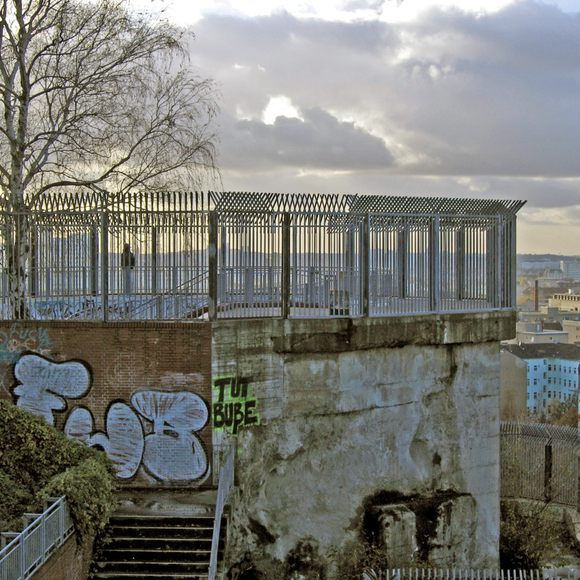

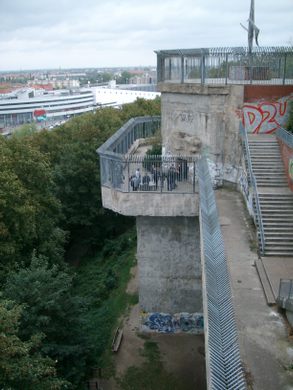


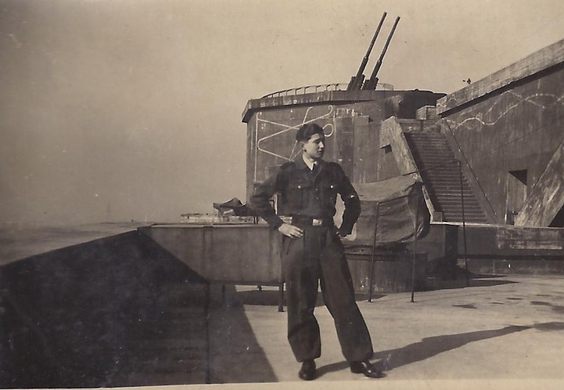






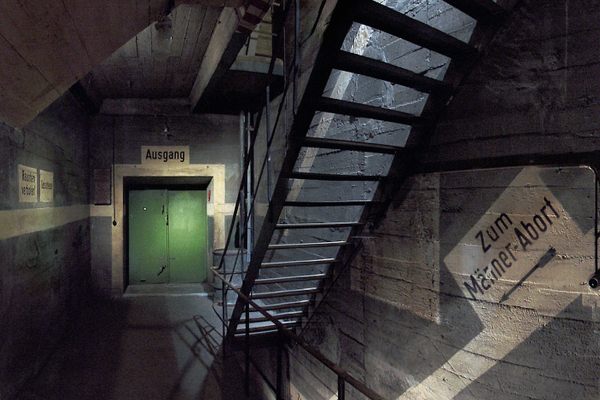



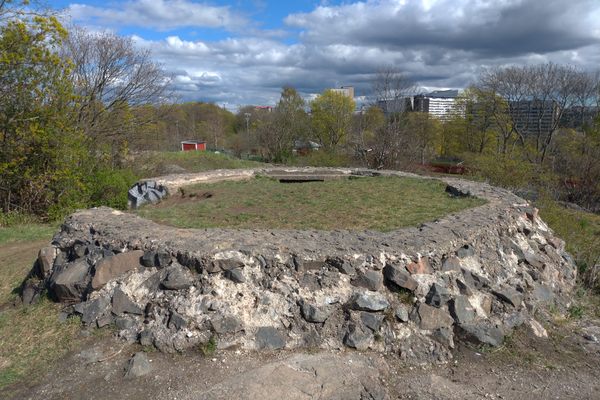
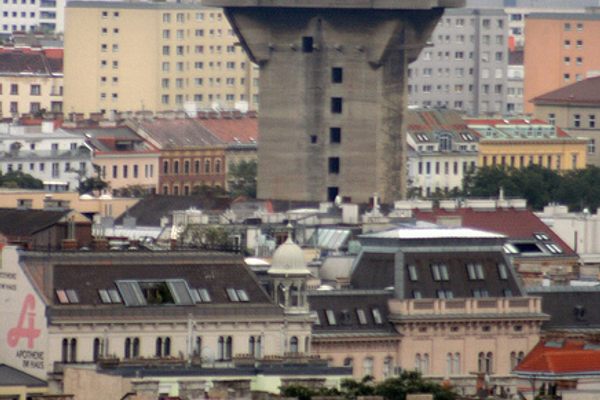

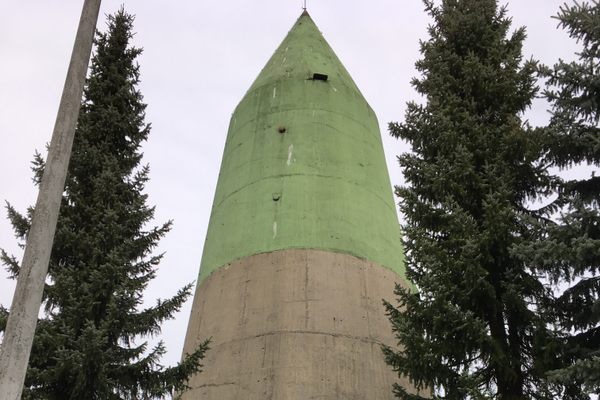

Follow us on Twitter to get the latest on the world's hidden wonders.
Like us on Facebook to get the latest on the world's hidden wonders.
Follow us on Twitter Like us on Facebook